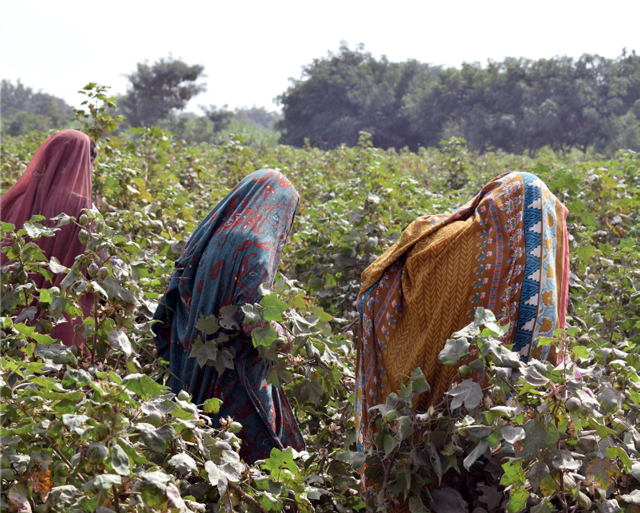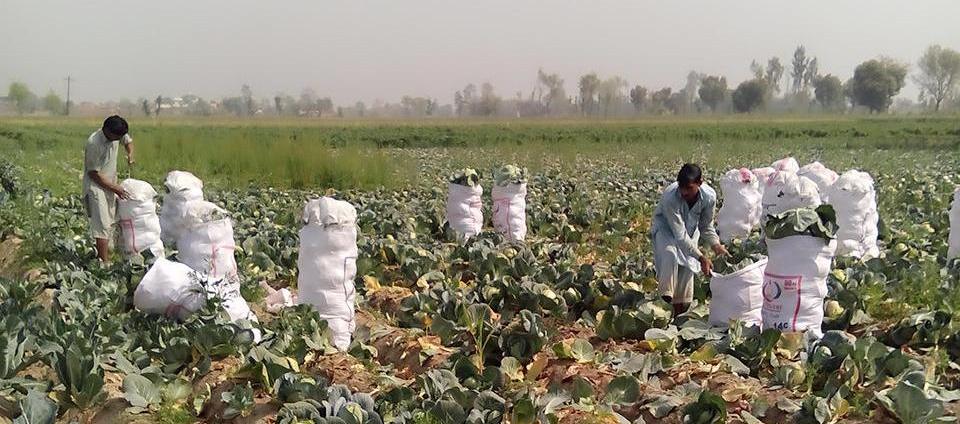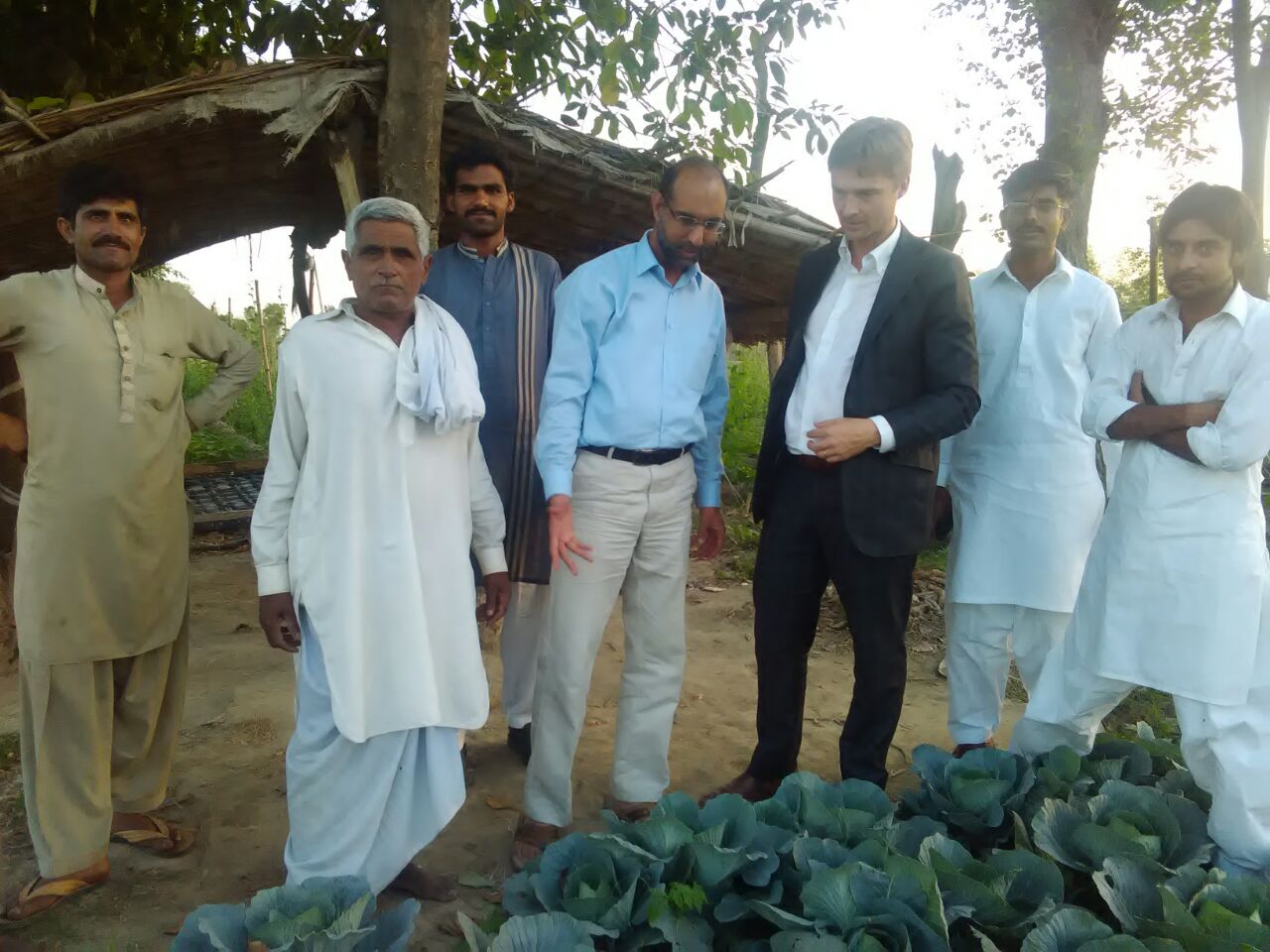UQ researchers are identifying improvements to agricultural credit systems to increase smallholders’ productivity and wealth in Pakistan.
Pakistan’s agriculture sector accounts for more than 20 per cent of the country’s GDP and 40 per cent of jobs. Despite this, many smallholders in rural Pakistan live in poverty. With limited access to innovative farming techniques and equipment, many are ill-equipped to take advantage of emerging food markets in Asia.
Innovation limited by insufficient credit services
 UQ School of Business Postdoctoral Fellow Dr Shabbir Ahmad is aiming to improve the lives of these smallholders by refining agricultural credit schemes currently offered by financial institutions.
UQ School of Business Postdoctoral Fellow Dr Shabbir Ahmad is aiming to improve the lives of these smallholders by refining agricultural credit schemes currently offered by financial institutions.
“Despite the tremendous growth in agricultural credit supply for farming inputs like seed, fertiliser and pesticides, very little credit is available for farm implements such as machinery, tools and technology-led products. This shortfall limits farm productivity and innovation,” Dr Ahmad said.
Researchers particularly wanted to investigate two proven productivity levers for Pakistani smallholders: more efficient credit markets and schemes that promote entrepreneurial opportunities, especially for women, and how they positively affect farm productivity, income and social outcomes.
The main objectives of the study were to provide an informed summary of credit access issues that smallholders experience, explore credit constraints, identify the research and development priorities, and recommend strategies and actions to improve outcomes for smallholders.
UQ researchers surveyed nearly 1000 smallholder farmers in Punjab and Sindh provinces to explore how they are accessing credit and financial services, the current farming practices employed by these smallholders, and whether and how new farming technology is adopted. They also investigated schemes that could promote entrepreneurial opportunities, especially those that would empower and uplift women in these rural communities.
 High burden of loans preventing smallholder uptake
High burden of loans preventing smallholder uptake
Researchers found that many farmers were uninterested in loans because of the high cost of borrowing. Many of the poorest smallholders in Pakistan have little or no capacity to draw on other sources of income to repay their debts if the cash flow from an agricultural investment is insufficient to cover their repayments. However, farm productivity improved considerably where there was efficient use of agricultural financing, bundled with technology and advisory services. Although this effect was much lower for livestock smallholders.
Improvements to agricultural credit systems increase wealth
“Many smallholders are losing half of their farm production because of poor farming practices. With advisory support, these farmers could improve their productivity by approximately 30 per cent, by better managing water, fertiliser and pesticides,” Dr Ahmad said.
“By increasing the productivity of their farms through more innovative farming practices, more smallholders in rural Pakistan could be lifted from poverty,” Dr Ahmad said.
 Project findings, including recommendations for strategies and actions to improve smallholders’ lives, were widely disseminated to agricultural reforms committees, both at provincial and federal levels, and to the government, which included these policy suggestions in their 100-days reform agenda as well as their long-term policy measures.
Project findings, including recommendations for strategies and actions to improve smallholders’ lives, were widely disseminated to agricultural reforms committees, both at provincial and federal levels, and to the government, which included these policy suggestions in their 100-days reform agenda as well as their long-term policy measures.
This small research activity demonstrates the need for further policy research. There are several opportunities that can be pursued to further develop microfinance as a lever for value-creating in Pakistan’s agricultural sector, and there is strong demand to do so from the Pakistan government and other stakeholders, especially in the finance sector.
Throughout this project, researchers built upon the research capacity of local universities’ faculty staff and graduate students. Three-day survey training programs were provided to 40 graduates and five faculty staff from different universities in Punjab and Sindh. The findings of the study were shared with policymakers including Minister for Finance, Minister for Agriculture, Governor State Bank and Prime Minster Agricultural Reforms Committee, which could assist the government while the agricultural reform policy agenda is under consideration.
Research funding
Australian Centre for International Agriculture Research (ACIAR)
Partnerships
This study was implemented by UQ Business School in collaboration with University of New England, Pakistan Agriculture Research Council, five local universities of Pakistan, and financial institutions in Pakistan.



